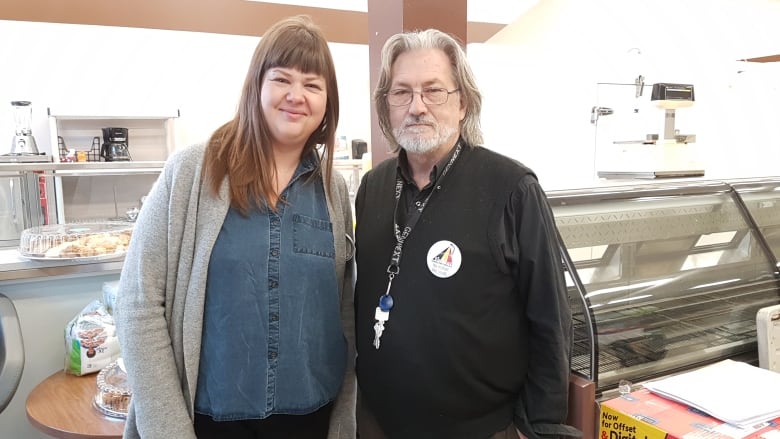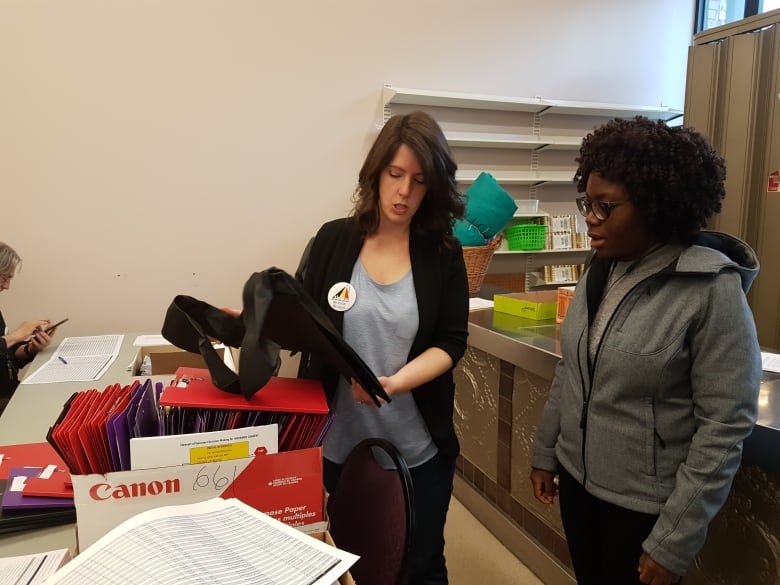From $120K/year to living in a car in 4 months: Caseworker brings human face to homeless census
Al Wiebe now helps people find homes after he lost his job and ended up living in a wrecked Mercedes

Al Wiebe defies the stereotype of why people end up on the streets — that they're homeless because they're addicts and they should just lift themselves up out of poverty, already.
"I was a $120,000 earner in the advertising game and I lost my job," he said.
Spiralling into depression and unable to handle the trauma of losing his job, Wiebe spent the last of his money and four months later, he was on the street.
"I nearly ended up taking my life," he said. "But I'm here for a reason. I survived it all for a reason, and I'm really happy to be part of all this."
Wiebe is now a caseworker and co-ordinator for Wednesday's Homeless Street Census, which aims to not only gather more accurate numbers of those living on Winnipeg's streets, but to bust some of the myths surrounding why individuals end up with nowhere to go.
"There are so many different reasons why," Wiebe said. "And there's a stereotype and what this is also doing is breaking that stereotype."
Winnipeg's first homeless street census found about 1,400 people living on Winnipeg's streets, Wiebe said.
The data and information collected from people in the first census led organizations to realize there were people in places they were missing.
"We're trying to find everyone," said Wiebe. "We're not going to do that, but we're trying the best we can."
What was abundantly clear was that homelessness was happening in neighbourhoods beyond the city's core, but those people tend to be harder to find, he said.

"I was a hidden homeless person," said Wiebe, who went from driving a new Mercedes to surviving in a 40-year-old wrecked Mercedes in the back lane behind an auto wrecker.
"Had a leaky sunroof and a front door and window that was cracked, but it was out of the elements," he said.
"It was a very cold winter. I ended up there in February of 2010 and I survived the winter, and I kept hoping that tomorrow morning I would not wake up."
Wiebe said after trying three times to access services at Health Sciences Centre for his depression and being turned away, he jumped off a bridge into the Assiniboine River.
He survived that suicide attempt and ended up finding help thanks to a doctor at St. Boniface Hospital who changed his life, he said.
A few years later, he was working for a housing first initiative.

The census is being done by hundreds of volunteers walking a couple dozen routes, heading to service organizations and other places where those on the street might be, said Christina Maes Nino of the Social Planning Council of Winnipeg, which is helping organize the census.
"Government likes numbers, media likes numbers, the public likes numbers, but we want to understand some of the stories behind those numbers," she said.
People who participate are asked to fill out a questionaire that includes demographic information as well as reasons why they are on the street.
One of the biggest focuses is on the relationship between homelessness and those who have been in the child welfare system, Maes Nino said. During the last census, about half of those on the street said they had previously been in care.
Because this year's census is using a refined methodology, different from what was done in 2015, organizers expect Winnipeg's numbers to change, perhaps significantly, as they connect with more people, Maes Nino said.
"When we see changes, we're going to have to be really careful about interpreting them."
Hearing individual stories is important to make sure available programming accurately reflects the support the homeless population needs, said Rebecca Blaikie, director of community services at Mount Carmel Clinic, one of the 30 groups and organizations participating in this year's census.
"Folks experiencing homelessness today in our city [should] know that they matter and that effort is being made to hear their voice," Blaikie said.
"Then afterwards [we will] use the data and the stories that we're collecting to motivate us as organizations and advocates to do more to grow our programming."
With files from Meaghan Ketcheson
